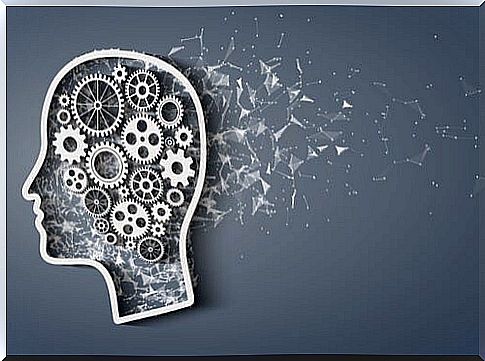Metacognition: Characteristics And Components

The term metacognition is complex. It can be summarized as knowledge about one’s own knowledge, that is, the ability to know and regulate how we think and that encompasses the conscious control of cognitive processes such as memory, attention and understanding.
The study of metacognition began with the epistemologist and cognitive psychologist J. Flavell and with the English anthropologist and psychologist Gregory Bateson. The latter focused on metacognition studies in animals.
Metacognition gives us that extra flexibility that characterizes the human mind. Thus, metacognition must be understood as second-order knowledge, insofar as it has itself as an object. Hence the prefix “meta”. This allows us to evaluate executive processes and act accordingly to improve our actions.
An example of metacognition can be the fact of reading a text and when monitoring if we have understood it, we realize that we have not and we read it again. Or for example when when solving a problem we perceive that the mental strategy that we were applying does not work and we change to another.
The two faces of metacognition
A key aspect to understand metacognition in depth is to be clear that it is a multifaceted concept. We can talk about this from two different perspectives, although largely related. One is from its content and the other, taking into account the process that it entails.
In this way, we differentiate metacognition as metacognitive knowledge and as metacognitive control. Below we will explain each of these perspectives and what they imply. Let’s go deeper.

Metacognitive knowledge
This term refers to what people know about their cognitive processes and those of others in general. Thus, this face of metacognition refers to aspects of content or knowledge itself. It is a declarative knowledge that for example we practice when we think about our intellectual capacities, learning or memory capacity.
This type of knowledge has the following characteristics :
- It is relatively stable, as an intuitive model about knowledge and how it works.
- Verifiable and communicable, insofar as it can be accessed to reflect and talk about it.
- Fallible, since wrong reasoning and wrong ideas can occur.
- Of late development, since it appears in the last stages of development, since it requires a great capacity for abstraction.
Furthermore, metacognitive knowledge is made up of 3 main components:
- Personal variables : this is the knowledge referred to ourselves as thinkers and learners. That is, about our capacities and experiences in carrying out various tasks. For example, thinking that we are better at math than languages or that we are better at remembering names than a friend.
- Task variables : these include the knowledge we have about the objectives, as well as all those characteristics that influence their difficulty. For example, knowing that studying requires much more effort than reading a novel.
- Strategic variables : it is the knowledge about the means that can help the execution of the task. It involves an understanding of the declarative, procedural and conditional aspects of the applicable strategies.
Metacognitive control
Metacognitive control refers to active supervision, and its consequent regulation and organization, according to the processes that act at a given time. That is, it refers to the ability to be attentive to possible failures and act accordingly to reduce them. It is important to clarify that the metacognitive process is present before, during and after the objective task.
Metacognitive control has the following characteristics :
- It is not considered stable, since it is associated with cognitive activity, and therefore depends on the situation and the specific task.
- It is relatively independent of age, it seems that once the metacognitive processes have been developed, age is not an influencing variable.
- It is a largely procedural and subconscious process, therefore many of its aspects are inaccessible and incommunicable.
The main components of metacognitive control are the following:
- Planning. It refers to the development of a strategic plan before starting the task. Which implies organizing the resources and strategies to be used, taking into account the final objectives pursued.
- Supervision. It consists of the review and adjustment of the actions during the performance of the task, in order to achieve a progressive approach towards the goals. This involves a double interactive process: a “bottom-up” reasoning, error detection; and “top-down” reasoning, correcting mistakes.
- Evaluation. It is the assessment of the final results after the completion of the task in relation to the previous objectives. In order to consider corrections and strategy changes in future tasks.

conclusion
Metacognition is a key aspect in information processing. In fact, in the vast majority of tasks we observe that metacognitive aspects are present and weigh heavily ; both metacognitive knowledge and metacognitive control. And you have to understand that the difference between cognition and metacognition is a very thin line, which leads us to think about a dimensional aspect rather than watertight categories.
Researching metacognition helps us understand human thinking and reasoning. What is highly important in a multitude of other fields, such as the clinic or education. Since understanding the functioning of the human mind helps us to improve all the processes that have to do with it.









